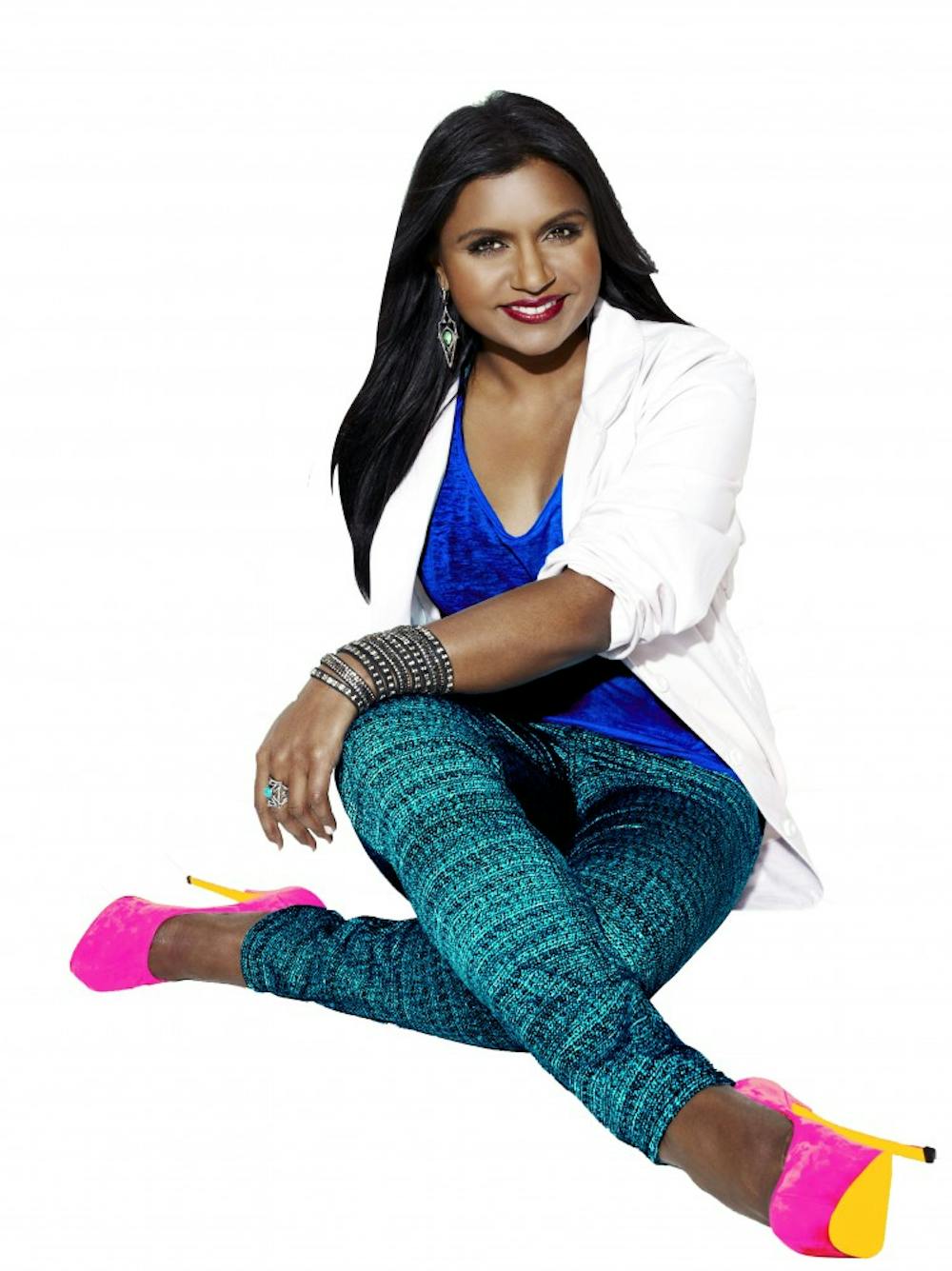At first glance, a TV character whose main hobbies include naming celebrity couples and wearing bold prints doesn’t really give off a feminist vibe, but Mindy Kaling’s character of Dr. Mindy Lahiri is doing more for feminism than you think.
Mindy Kaling is a trailblazer—she’s the first South Asian woman to helm and star in her own sitcom, and she’s doing it somewhere around a dress size 8. But that’s not why Kaling’s character of Mindy Lahiri on “The Mindy Project” is so cool. What makes Mindy Lahiri cool is that she is unabashedly and unapologetically herself in every single episode of her show. Mindy Lahiri is obsessed with a feminine culture that society frequently tries to ostracize. Television shows like “The Good Wife,” “Scandal” and “Veep”—while great shows—portray strong women who are embracing a more masculine culture.
Alicia Florrick, Olivia Pope and Selina Meyer are more stoic, jaded and, in Selina’s case, hilariously crass than truly feminine. These shows aren’t bad for feminism. After all, women can be tough and offensively funny, too. However, without the balance of a show like “The Mindy Project,” which embraces feminine culture, they only promulgate the degradation of feminine culture overall. It’s important that women are represented on a spectrum, and “The Mindy Project” presents that spectrum while being just as funny as a show like “Veep.”
Mindy Lahiri likes clothes, interior decorating, celebrity gossip, Michael Fassbender (or as she lovingly refers to him, Fassy) and chicken wings. Mindy Lahiri hates cats and working out, and couldn’t cook if her life depended on it. Mindy Lahiri is also confident, vulnerable and, most importantly, an independent career woman. She didn’t become a successful OBGYN in New York City by becoming jaded—part of her success stems from her warm and womanly bedside manner. Her success comes from the fact that she embraces her feminine qualities.
These days, the issue of patriarchy is less about men hating women and more about society hating femininism, and Mindy Lahiri is successful feminine culture embodied—she’s a bubbly, open and communicative individual who helps her masculine counterparts open up about things like daddy issues and ex–fiancées. While her feminine qualities contribute to many funny plotlines, they ultimately help the relationships and personal lives of her friends in the office.
This issue of oppressing feminine culture extends to the culture surrounding body image as well. Body insecutiries sometimes come from a place that tries to masculinize the female body by devaluing curvier figures. On the show, Mindy expresses certain insecurities about her body (not being a size 0 and all), but an episode this season, "Danny Castellano is my Personal Trainer," made a very smart point about the issue. After a series of comical naked run–ins between Mindy and co–worker (/potential love interest, OMG that last episode, amirite?) Danny Castellano, Danny says to Mindy (after she bothers him to be honest about her bodily flaws), “You’re a woman and that’s good; look like a woman.” There are probably some issues with that statement coming from a man’s mouth, but the bottom line of the message is this: a lot of the negative aspects of body image culture are related to a body ideal that calls for women to be unnaturally skinny. Women are supposed to have curves, and it’s also okay if they don’t, but a number of women do fluctuate between “chubby and curvy,” just like Mindy herself. What Danny’s line promotes here is the idea of embracing a natural, feminine body shape. And that’s part of feminine culture, too.
Mindy isn’t always a glowing beacon of feminism, but television characters aren’t really written to be glowing beacons of anything. Television characters are meant to entertain; it’s just a bonus that “The Mindy Project” is doing more than that. At the end of the day, Mindy Lahiri is just one kind of role model for women, but she’s a pretty important one.

